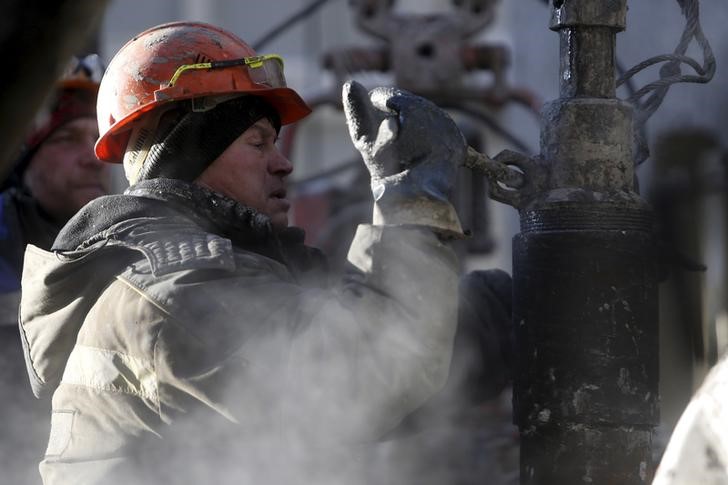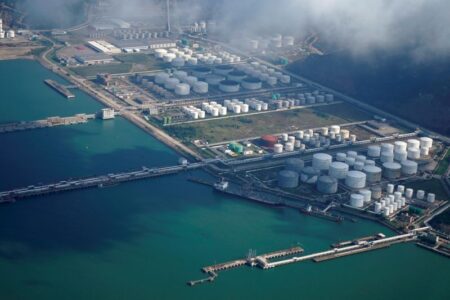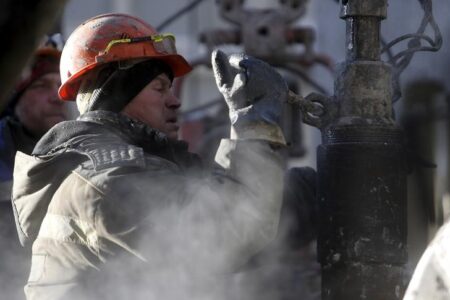By Andrea Shalal
MARRAKECH, Morocco (Reuters) – U.S. Treasury Secretary Janet Yellen on Wednesday said a G7-led price cap on Russian oil had sharply reduced Russian revenues over the past 10 months, and that it was critical to keep imposing severe and increasing costs on Russia over its war in Ukraine.
The war in Ukraine remained a major headwind for the global economy, she said in remarks prepared for a news conference on the sidelines of the International Monetary Fund and World Bank meetings in Marrakech, Morocco.
Yellen also said the IMF’s updated outlook showed the global economy was in a better place than expected at last year’s annual meetings, but Treasury continued to monitor downside risks.
While some countries were seeing slowing growth, including China and the euro zone, Yellen said she did not see signs of any broad spillovers destabilizing the global economy.
Yellen condemned Saturday’s attack on Israel by Hamas gunmen from the Gaza Strip, the deadliest Palestinian militant attack in Israel’s history, but her prepared remarks did not touch upon its potential impact on the global economy.
The Treasury chief, who visited Ukraine in February, said the Biden administration would work with Congress to ensure continued support for Ukraine.
“We cannot allow our support to Ukraine to be interrupted,” she said. “The Biden administration – with the support of a bipartisan majority of the U.S. Congress and the American people – will work so that Ukraine receives the assistance it needs to win this war.”
Republican infighting in the House of Representatives has complicated budget negotiations and recently prompted President Joe Biden to express fears that U.S. aid to Ukraine could be hurt by congressional chaos.
Yellen said the Biden administration would also keep working to mitigate the impacts of Russia’s war in Ukraine, including on food security, while working with a global coalition to deprive Russia of the funding it needs to wage the war.
She said the price cap on Russian oil had “significantly reduced Russian revenue over the last 10 months while promoting stable energy markets.”
Global energy prices have been largely unchanged while Russia has had to either sell oil at a significant discount or spend huge amounts on its alternative ecosystem, she added.
The Group of Seven (G7) countries imposed sanctions in December that prohibit shippers or insurers domiciled in G7 countries from offering services to facilitate Russian oil exports when the price is above $60 a barrel. The sanctions do not apply to shippers or insurers from other countries, regardless of the price. Critics say Russia is circumventing the cap by using a “ghost fleet” of older tankers.
Yellen also voiced support for taxing windfall proceeds from Russian sovereign assets immobilized in particular clearinghouses and using the funds to support Ukraine.
“We must continue to impose severe and increasing costs on Russia and continue efforts to ensure Russia pays for the damage it has caused,” she said.
Yellen said Washington’s focus on the global macroeconomy and on addressing global challenges continued to shape its approach to U.S.-China ties, adding that she would meet with China’s top central banker Pan Gongsheng in Marrakech this week.
Read the full article here












